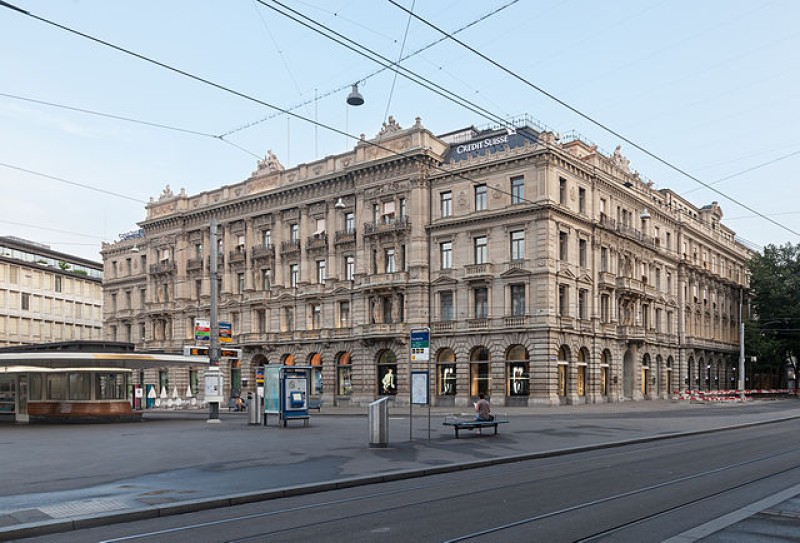The bank’s sale to USB comes shortly after it reported its largest annual loss since the 2008 financial crisis, brought about by an exodus of shareholders and the release of media investigations exposing it as a safe haven of choice for unsavory clients.
The causes behind its financial woes can be found in its 2022 annual report, which documented “significantly higher withdrawals of cash deposits” from late last year and how “customer deposits declined by CHF 138 billion ($148.3 billion)” in the same quarter.
But with all this negative publicity at home in Switzerland, the bank’s activities in China with sanctioned state-owned entities have, until now, gone unnoticed. Its Hong Kong-based arm, Credit Suisse Securities, invests in listed Chinese entities, some of which are state-owned.
Data from the Hong Kong Stock Exchange reveals Credit Suisse’s investments in sanctioned entities and companies connected to sanctioned entities such as China Railway Construction (CRRC).
The Swiss banking giant is a significant shareholder in CRRC—formerly one of the largest construction and engineering companies in the world—along with a local Chinese bank.
Also known as “China’s crown”, CRRC is no stranger to criminality.
About a decade ago, CRRC was penalized by China’s ruling party for spending more than $100 million on hospitality expenses. In that same year, it began delivering locomotives to South Africa.
What followed was a highly corrupt set of deals, involving South Africa’s Gupta family and former President Jacob Zuma, in what amounted to State Capture. Media investigations led by South Africa’s Daily Maverick and amaBhungane found at least a fifth of all payments to CRRC were then paid as kickbacks to the Guptas - a family accused of state capture.
By 2020, the South African Reserve Bank froze over $215 million in payments to CRRC.
The following year, the construction enterprise was sanctioned by the U.S. government in 2021 as a Chinese military company.
The designation didn’t stop the Swiss banking giant from investing at least $175 million in CRRC securities the following year. Credit Suisse also trades substantial stock in CRRC separately and as part of a joint venture with China’s largest bank, ICBC.
The effect of the joint venture makes both banks one of the largest shareholders in CRRC.
“Credit Suisse complies with all applicable sanctions laws, including those imposed by the United States, EU, and Switzerland,” Credit Suisse told OCCRP.
However, the bank’s portfolio also includes the U.S.-sanctioned China State Shipbuilding Corporation (CSSC) and the Chinese tanker company COSCO.
“Banks like Credit Suisse just don’t seem to get it — after decades of trying to get them to stop engaging in financial chicanery and sanctions busting, they just keep it up,” said Jim Henry, an investigative economist and lecturer at Yale University. “This is why they ended up like the dozens of busted locomotives hanging around South African rail-yards.”
The bank’s share price nose dived by as much as 30% last Wednesday. This led to its forced acquisition over the weekend by UBS for $3.2 billion after a $54 billion liquidity backstop from the Swiss central bank failed to stop the bleeding.
The agreed purchase price between UBS and Credit Suisse will see the Swiss banking giant sold for pennies on the dollar, 60% less than its closing share price from Friday last week.
The sale is not subject to shareholder approval.



